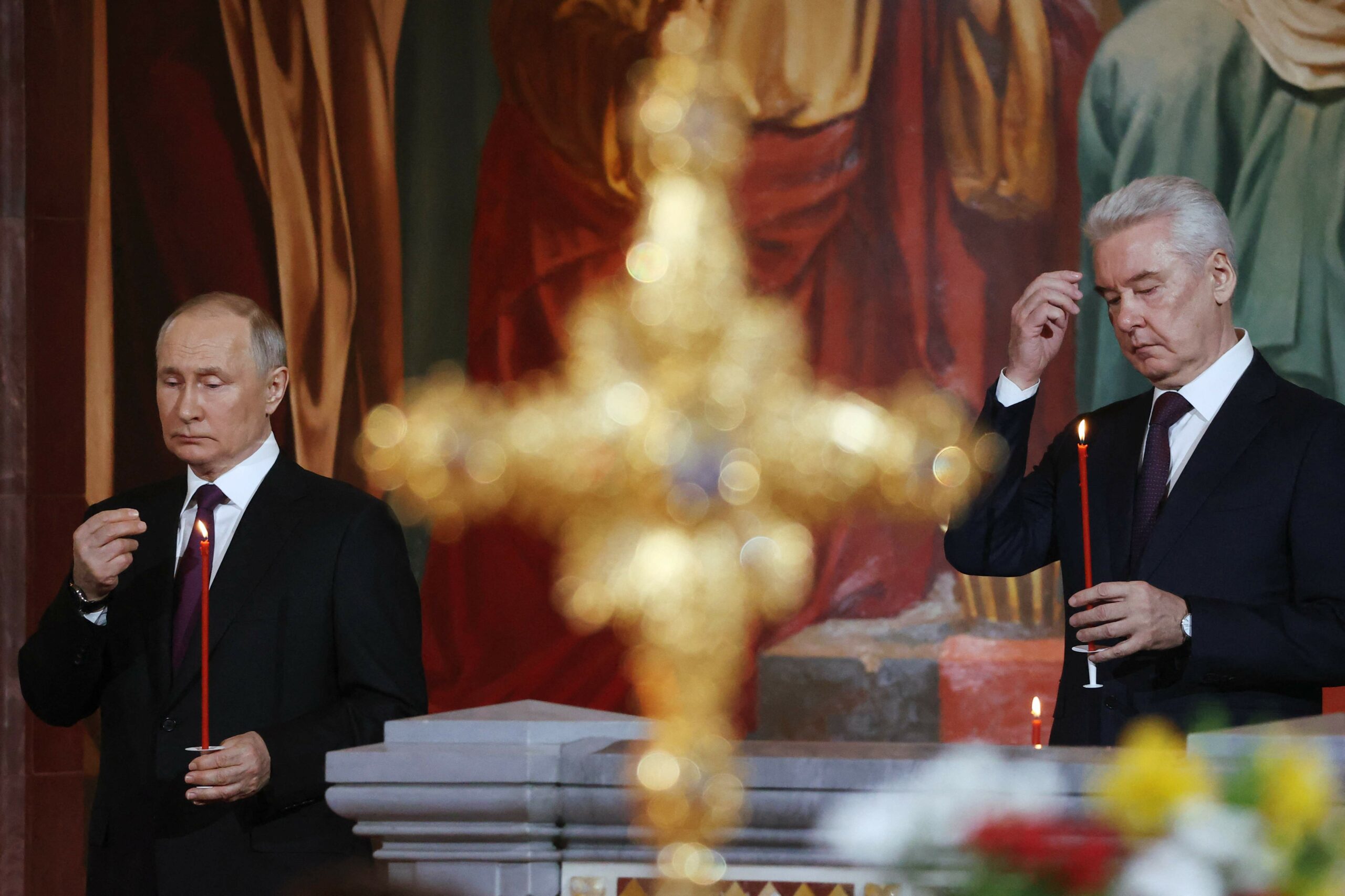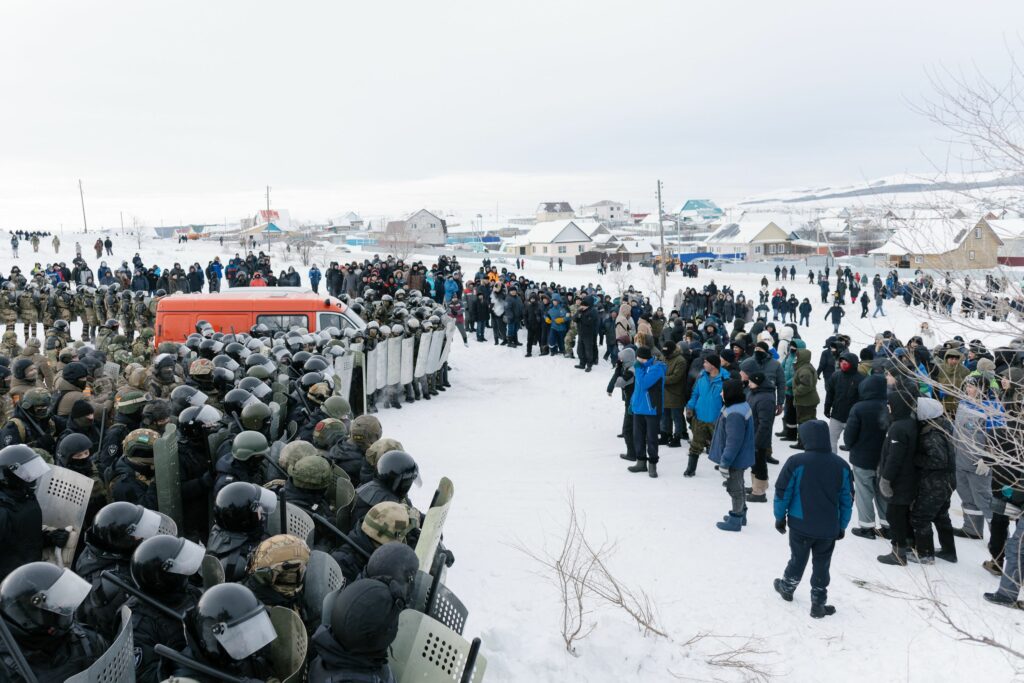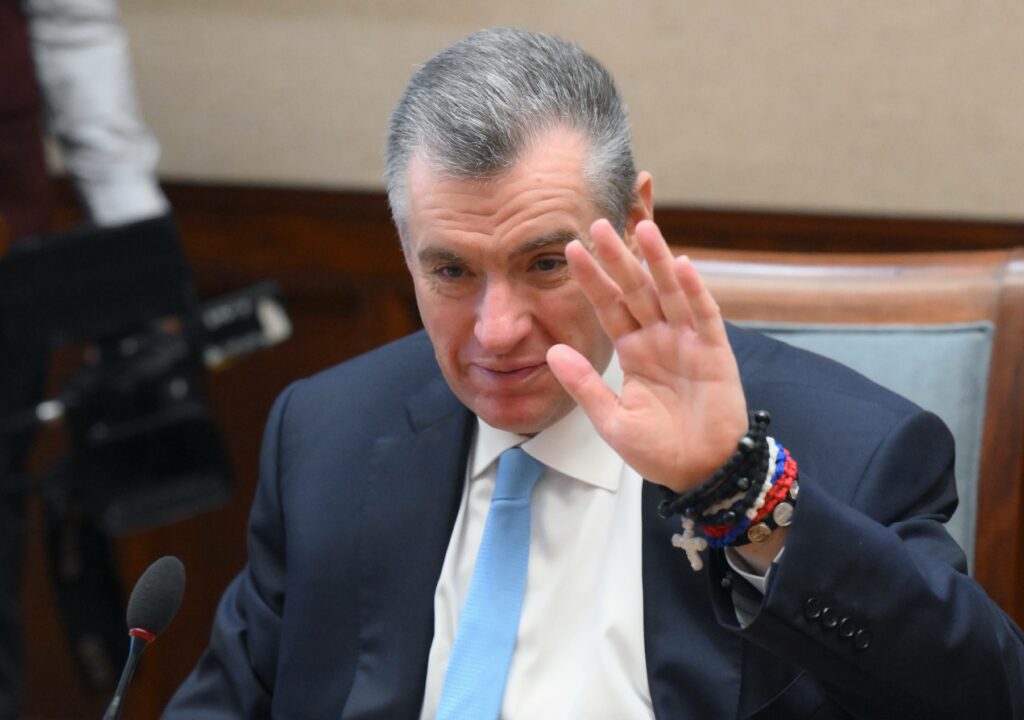Moscow’s mayoral elections will be held in September and the incumbent, Sergei Sobyanin, is in cruise control. His popularity is high; no serious rivals are waiting in the wings. Better still, the mayor’s office has electronic voting in its arsenal. It has already ensured the victory of United Russia in all single-mandate constituencies in the latest elections to the State Duma, even when offline results saw opposition figures heading for victory.
However, the Kremlin is not letting Sobyanin build up too much momentum, in fact, the plan seems to be to make him leave the campaign politically weakened. The presidential administration does not need any more politically strong figures; they can only detract from the polling figures of Vladimir Putin.
Sobyanin is running for his third term. He has almost 70% support, according to a survey by the independent research group Russian Field. According to the same data, 82% of respondents are satisfied with the state of affairs in Moscow. The systemic parliamentary parties have already announced their candidates — you cannot call them popular or even recognisable. You have Moscow City Duma deputy Leonid Zyuganov, the grandson of KPRF leader Gennady Zyuganov; then there is the political strategist and State Duma deputy Dmitry Gusev from Just Russia. Also running is vice speaker of the federal parliament Boris Chernyshov from LDPR and vice speaker of the State Duma Vladislav Davankov from New People. Despite the formal high status of Chernyshov and Davankov, they themselves are little-known figures and the same can be said about Gusev. The surname Zyuganov, of course, is well known, but Russians rarely enjoy voting for nepotism, which is borne out by Zyuganov having thr highest «anti-rating.» The mayor’s office will actively use electronic voting, which election experts call «fundamentally uncontrollable.» In order to make citizens more willing to go online, the city administration reduced the number of polling stations by almost 50%. And the tactic seems to have worked: only older people prefer offline voting. It is already clear that the elections in Moscow do not carry any intrigue; the only question is the final percentage that Sobyanin will receive. However, the disposition of the campaign itself shows that the Kremlin really does not want the mayor of Moscow to be able to increase his real rating. On the eve of the presidential elections, the presidential administration clearly needs a weakened Sobyanin.
Not For all Muscovites
There is already a fly in the ointment in the campaign of the Moscow mayor; he will go to the polls not as an independent candidate, but as a candidate from the United Russia party. In the last elections, Sobyanin did not use the services of United Russia, running in his personal capacity. Clearly the party in power is not particularly popular in the capital. In 2019, in the elections to the Moscow City Duma, the candidates of the mayor’s office became self-nominated, so even the then leader of the city branch of the United Russia, Andrey Metelsky, ran for election as independent. It was not possible to deceive voters; the opposition exposed hidden United Russia members — they received the nickname «self-bearers» and in almost half of the districts the proteges of the administration lost. In the 2021 State Duma elections, it was decided not to hide the representatives of the ruling party; but in most districts, according to the results of offline voting, they still lost. It was only possible to get United Russia members into parliament thanks to electronic voting. The mayor and his political advisers perfectly understood and understand the toxicity of the United Russia nomination and have successfully resisted it so far. In addition, self-nomination gave another technological plus. Sobyanin positioned himself as the candidate of all Muscovites: he had an umbrella brand — the «My District» governance program — which the mayor’s office promotes, not only during the election period.
Far from all heads of regions get the opportunity to go to the polls without being nominated by United Russia. Self-nomination is used in protest territories when the association of a protege of the Kremlin directly linked to the ruling party can directly affect the election results. Similarly, candidates with a special status and position within the vertical of power have this privilege. For example, as a self-nominated candidate, Alexei Dyumin, a former bodyguard of Vladimir Putin, ran for the election of the head of the Tula region. Sobyanin, as a longtime associate of Putin, had this privilege too, but has now been deprived of it. It is unlikely the mayor refused this opportunity on his own initiative. Everything was otherwise going to ensure he again advanced in his personal capacity: the mayor’s office has not recently highlighted United Russia, preferring to promote «My District» as usual. Most likely, the head of the capital received a strong recommendation to go to the polls under the party banner; such recommendations can be hard to refuse.
It was not even Sobyanin himself who announced his nomination for mayor as United Russia representative; in fact, it was the leader of the Moscow branch of the party (State Duma deputy Pyotr Tolstoy.) The party status deprives Sobyanin of the title of «candidate of all Muscovites» and alienates a small but important part of the electorate. People who are not against another term for the mayor, but do not support United Russia, may no longer vote.
As a result, the mayor will lose votes, and turnout will drop. Or the city administration will have to «correct» the results, which means making them implausible. There are only disadvantages because of this nomination and literally nothing to gain.
Negative Selection
The recruitment of Sobyanin’s sparring partners seriously reduces interest in this campaign. It would have suited the governor or the acting head of a region with a very low rating. In those cases, the authorities really make a serious screening, selecting candidates for whom the voter will not vote, even in protest. A striking example of this approach is the nomination of Leonid Zyuganov. The nominees of the Communist Party of the Russian Federation are often used as an analogue of the «against all» column, but the name of Zyuganov excludes this possibility. At the same time, there is no actual threat from Muscovite communists to Sobyanin. He would have won elections against neutral and even more or less well-known candidates, and this result could have been presented as an achievement. The mayor’s office understood this, so it has initially discussed that the State Duma deputy from the New People, the former mayor of Yakutsk Sardana Avksentyeva, well-known and popular in the opposition audience, could become his main opponent. The communists discussed the nomination of Denis Parfyonov, a well-known State Duma deputy in Moscow. Suffice it to recall that in 2013, Alexei Navalny was nominated and registered as a candidate for mayor of Moscow, taking second place and almost pushing Sobyanin into a second round runoff. A victory over well-known, albeit agreed-upon competitors would bring points to Sobyanin, increasing his popularity. But in the end, he will «fight» Zyuganov’s grandson.
A Bad Deal
The weakening of Sergei Sobyanin on the eve of the presidential campaign is beneficial for the Kremlin. According to polls by the Russian Field, Vladimir Putin’s electoral rating is 30%. With a direct question about the support of either Putin or another «worthy candidate», the president gets 40% of the vote, and the «worthy candidate» — 45%. The Russian voter is clearly looking for an alternative, and a lively campaign for city hall can suggest this alternative. The political bloc of the Kremlin, on the other hand, is guided by completely different figures — it intends to set a record, that is, to give Putin 75−80% of the vote. To do this, it is necessary to eliminate all possible risks. More than 10% (and possibly even up to 20%) of the country’s population lives in and around the capital, so fluctuations in sentiment here may affect Putin’s turnout and result in Russia as a whole. A voter «politicized» during the mayoral campaign may boycott the presidential elections — after all, their «candidate» does not participate.
According to the same poll, Sobyanin’s rating is less than one percent, but Prime Minister Mikhail Mishustin is also gaining less than one percent. At the same time, Evgeny Prigozhin has 2%, Alexei Navalny — 1.8%, Sergey Furgal — 1.1%. Obviously, when answering an open question, the respondents first listed either Putin as a representative of the authorities or figures that they consider to be the real opposition. Sobyanin and Mishustin are part of the «representatives of the authorities» group, from which there is already a candidate, so they are simply not perceived by the audience as contenders for the post of head of state. If the situation changes, then the layouts will be completely different. Sobyanin’s campaign could become such a trigger — after all, the mayor will talk about his achievements, ideology (and a statement like «I’m working with real management, I’m not doing politics» is now quite an ideology). A confrontation, albeit a controlled one, with well-known figures would enhance this effect. Sobyanin is one of the few high-ranking participants in the power vertical — a real public politician, with his own image and a well-formed campaigning style. This year’s elections deal a serious blow to this status.
This means the head of Moscow needs to be tied with a weight in the form of United Russia and forced to compete with Zyuganov’s grandson, and not with Avksentieva. Putin will no longer be afraid of such a «competitor». Sobyanin accepts these rules of the game and is ready to play by them. He chooses a place in the vertical, giving up his personal brand and public status.










